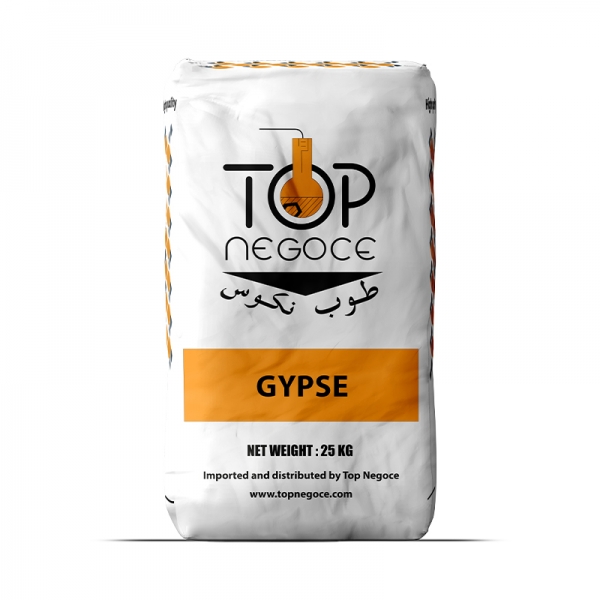Gypsum appears as a white crystalline and odorless powder. It is non-combustible and only slightly soluble in water. Primarily composed of calcium sulfate dihydrate (CaSO₄·2H₂O), gypsum is known for its fine texture and its ability to transform into plaster when heated. This natural material is widely valued for its versatility in various industries.
Applications:
-
Construction Industry:
- Main ingredient in the production of plaster of Paris, used for molds, coatings, and partition walls.
- Added to cement to regulate its setting time.
-
Agriculture:
- Acts as a soil conditioner to neutralize acidity and increase calcium content.
- Improves soil structure and enhances water infiltration.
-
Food Industry:
- Used as a food additive (E516) and a coagulant in tofu and other food products.
-
Chemical Industry:
- Raw material for producing sulfuric acid.
- Utilized in manufacturing pigments and other chemical products.
-
Medical and Cosmetic Applications:
- Component in certain skincare products and cosmetic powders.
- Used in orthopedics and dentistry for making plaster molds.




